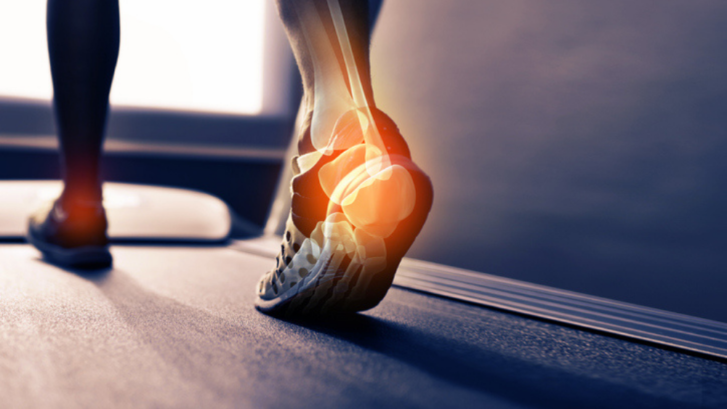How Can I Keep My Joints Healthy?
You may know about the importance of bone health and maintaining muscle strength, but did you know that good joint health is just as important? The Better Health Channel defines a joint (or articulation) as “part of the body where two or more bones meet to allow movement.” Almost all bones in the body end and connect to each other with joints, which allows the body to move as freely as it does.
As we grow older, our joints change, which can cause slowed movements, weakness, and even pain. The Mayo Clinic also lists heavy physical activity, overuse or underuse, and sprains or strains as other common causes of joint pain. By maintaining the health of our joints, we are not only protecting our bones, but also ensuring that we’ll be able to keep up active, pain-free lifestyles for many years. Here are eight of our best tips that will help you keep your joints healthy:
-
Keep moving your joints.
The more you move, the less stiffness you will feel, which will help keep your joints healthy. When you are engaged in sedentary activities (like working or taking classes from home, watching TV, or playing video games), remember to change positions, and to take breaks from your desk or chair to get up and move around at least every 30 minutes.
-
Playing sports? Wear protective gear!
Injuries can damage and weaken your joints, so be sure to invest in protective gear like elbow or knee pads if you plan to participate in any sports-related activities. If you already struggle with joint achiness or pain, consider wearing a brace on any affected areas while you play to prevent further injury.
-
Maintain a healthy weight for your body type and age.
Extra weight can add more strain onto your joints. By maintaining a healthy weight, you can help minimize strain on the joints in your hips, knees, and back.
-
Consume more Calcium and Vitamin D to help maintain bone strength.
Calcium and Vitamin D can help keep your bones strong, which will lower your risk for falls that may damage your joints. Calcium rich foods include leafy green vegetables (like spinach, kale, or broccoli), and products containing fortified flours. Vitamin D can be found in mushrooms and in various milks (like cow, soy, or rice milk); both vitamins can be found in dairy products.
-
Consider participation in low-impact exercises.
Even if you aren’t one to participate in sports, there are still some exercises that can be beneficial to your body! Low-impact exercises like walking, bicycling, and swimming can help protect your joints, and may feel more accessible to those who don’t consider themselves to be “athletic types.”
-
Work on strengthening your core.
Strong muscles are great supports for your joints – by strengthening your abs and back, you will improve your balance, and thus decrease the likelihood of damaging your joints with falls or other injuries.
-
Include more fish or Omega 3 in your diet.
Fish such as salmon and mackerel are good sources of omega-3 fatty acids, which may help keep your joints healthy and reduce inflammation. Alternatively, if you are not a big fan of eating fish or seafood, fish-oil capsules and Omega 3 supplements can be found at most grocery and drugstores.
-
Maintain good posture.
Good posture isn’t just great for your back – it will also protect and benefit your joints, from your neck down to your knees. If you work at a desk, make sure that your computer screen and desk chair are adjusted to comfortable heights to help reduce strain on your posture. Remember to also monitor your posture while standing, or participating in sports – good posture matters throughout the day, and not only when you’re sitting.
Have you recently found yourself with joint pain, or are you struggling with degenerative joint disease? Our doctors can help you find the relief you’ve been searching for. Contact us today at (800) 956-2663, or visit our website for more information.

